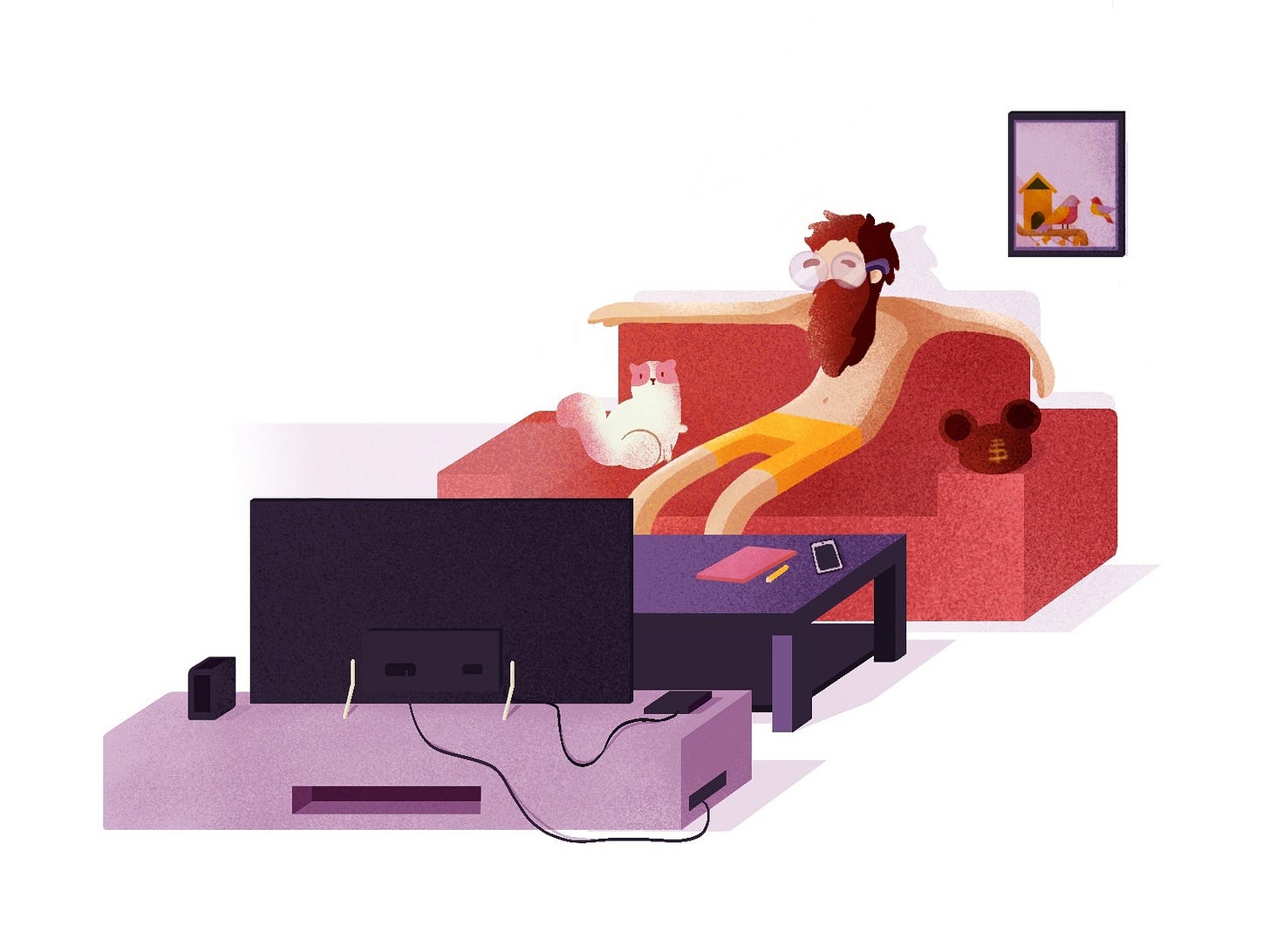Watch the 9 min video above for a breakdown.
I’ve turned this metaphor into a Hollywood survival guide. This is Part I.
Note: These posts are made for younger screenwriters, so feel free to skip if you have some experience working in Hollywood. This will all be old hat to you.
But if you’re just starting your journey, keep reading.
Welcome to The Wormball, my friend.
There are 9 Levels of Power in Hollywood.
Let’s dive in.
Level 9: The Dreamers
Hollywood is a caste system and the levels are based on power, money and credits. The outermost and most populated layer of The Wormball is a jumbled mess of talented creatives and flawed dreamers, but the one thing that unites them all - their lack of legitimate IMDB credits.
LEVEL NINE OCCUPANTS:
Writers still mastering their craft and putting in their 10,000 hours.
Actors and Actresses with short film or web series credits.
Creative Dreamers living in what Anne Lamott calls, “The Fantasy of the Uninitiated.”
Hollywood hopefuls who are waiting to get picked out of a submission pile.
Talented writers who hide behind their creative process because they are too afraid of being rejected. They prefer to live in the “realm of possibilities,” where there stories remain perfect renditions (in their heads).
Level 8: The Writers
To pass from The Dreamers level to The Writers level, you have to attain a legit writing credit or use your writing samples to secure reps (agents/managers) who can then put you in a position to attain that first credit.
This is one of the most difficult steps. You are leaving behind thousands of uncredited peers, and entering the arena of professional writers.
But here’s the most important thing to know when gain access to this level: you are still going to get treated like shit and no one really wants you or your ideas.
They want you to prove yourself so you can go fix other people’s shitty ideas.
As development budgets disappear, no one has the time or resources to develop Up and Coming writers. They want plug and play talent packages.
In previous decades, managers would sign young writers and help them hone their skills, hoping their long-term investment would pay off with script sales or steady TV work.
Now reps only want to sign the next Shonda Rhymes.
So we have to keep writing and networking until you put one of our original ideas in the right hands, at the right place at the right time.
Level 7: The Performers
Level 7 is made up of talented, but mid-tier performers who have good reps and IMDB pages full of film and TV credits. An official attachment with a Performer, does not have the power to tip the scales in your favor, but if you get a quality Performer who is on the rise, it can increase your odds of getting into a development deal.
LEVEL SEVEN OCCUPANTS:
Actors who have shined in supporting roles, but never been the lead.
Comedians with specials out and over 10,000 followers on social media.
Influencers and Creators with 100k to 1 mil subscribers.
Improv or Sketch Comedians with a large library of content to share.
Older Actors who were once in demand, but have now started their own production companies and have all the contacts and reps to help shepherd Up and Comers through the development gauntlet.
Level 6: The Gatekeepers
This level is made up of the creative executives and established managers who have years of experience developing content and packaging projects.
This group is your first line of defense when trying to sell your idea.
LEVEL SIX OCCUPANTS:
Creative Executives at Production Companies
Managers who have access to Production Companies
Independent Producers with access to Production Companies
SVP’s and Heads of Development at Production Companies
Hybrid Assistants/Researchers who read scripts and find source material for their Production Companies.
The most important thing to know about Gatekeepers is that they are....
EXTREMELY RISK AVERSE.
They have to be to advance in their careers. Most of them start as assistants and if they don't make any mistakes, they get promoted. Then when they become junior development executives and they don't get make any mistakes, they get promoted again to SVP's and Heads of Development. So when you walk into a room and ask for millions of dollars for your idea, you are pitching some of the most fear-driven people in The Wormball.
The only things that can help you build trust with them are credits & experience, clear communication and extreme confidence.
Level 5: The Sharks
This level is made up of agents and lawyers from mid-tier agencies like Gersh and Innovative all the way to the top-tier agencies like CAA and WME.
Over the decades, agents-actors-directors/showrunners have shuffled around these power rankings, but the power and influence of a strong social media presence moves The Showrunners one spot higher than The Sharks.
We know the names of our favorite Showrunners, but we don’t know the names of the most powerful agents in Hollywood.
LEVEL FIVE OCCUPANTS:
Male Agents who act like a perfect hybrid between a slippery Congressman and a slimy used car salesman.
Female Agents who act like a pitbull in pencil skirt
Outsiders: Agents who worked their way up from the mail room
Insiders: Agents who grew up in powerful Hollywood families
Ivy Leaguers: Lawyer/Agent hybrids who rebel against their old money upbringing by moving to Hollywood.
The most important thing to know about The Sharks is they control most of the job opportunities in Hollywood. If you don't have a powerful shark repping you, it's going to be really difficult getting a job on someone else's projects. They are the curator and arbiter of talent in The Wormball.
They also control access to the mandates sent out by networks, buyers, streamers and studios. Companies like Netflix will send CAA a breakdown of what kinds of genres and formats they are looking for, and The Sharks throw those buckets of chum to their favorite clients, and let them fight over the scraps.
You need Sharks to work at high level, but they don't have time to be your friend. They just want to quickly place you in an open slot and move onto the next one.
Level 4: The Chieftans
This level is made up of talented visionaries and creative leaders who have a successful track record of guiding projects from script to screen.
Once a movie or series gets a greenlight, every creative decision from casting to editing flows through their inbox.
LEVEL FOUR OCCUPANTS:
Indie Directors who are transitioning to bigger budget concepts.
Established and In-Demand Showrunners
TV Writers and Directors who have overall deals at Studios
A-List Movie Directors who also direct and produce TV pilots
Head Writers and Co-Ep’s who have climbed the creative ladder and have enough experience to become Showrunners on their next project.
Writers at their core are mostly introverted, non-confrontational people. That's why lots of writers never become Showrunners and Directors. It's a leadership position that requires you to create at a high level while also managing budgets, actor egos, fear from executives and a 100+ crew members on set.
I became a Showrunner at 35 and I was not ready for that position.
Level 3: The Stars
This level is made up of A-listers with household names. You don’t need to have a Star onboard to sell a project, but having one of them officially attached improves your odds from a nation-wide lottery ticket to a roulette table.
LEVEL THREE OCCUPANTS:
Leading actors and actresses with credits in both Film and TV
Famous Musicians who transition into acting
Famous Athletes who start their own production companies
Influencers and Celebrities with millions of followers.
A-list actors who have started their own Production Companies.
If you are an Up and Coming writer with no reps, you have a better chance at making one of your friends famous, then you do attaching one of these Stars to your scripts. But finding a talented performer who is one leading role away from becoming a Star can be one of the fastest shortcuts through The Wormball.
Level 2: The Suits
This level is made up of all the top executives and CEO’s who have the final say on whether or not your projects gets financed.
LEVEL TWO OCCUPANTS:
Streamer Bosses who use data and algorithms to fund their content slates.
Movie Studio Execs who sell international distribution rights to fund their projects.
Conglomerate CEO’s who can cross promote movies and shows on all of their platforms and channels.
Tech Giants who fund original content to keep people engaged on their platforms.
Talent Agents aligned with Venture Capital Firms and Distributors.
There are roughly 500+ scripted shows in production every year and roughly 500-800 movies released in the USA every year. The WGA gets roughly 50,000 new screenplays registered every year. The odds are not in you favor.
Level 1: US (THE VIEWERS)
This level is made up of us, the viewers. Believe it or not, we still control what gets made. We shape The Wormball with our clicks, eyes, posts and dollars.
LEVEL ONE OCCUPANTS:
Bingaholics with X/Twitter followers
Redditors, Youtube reviewers and bloggers.
Fanboys, Fangirls and Cosplayers.
Word of Mouth Marketers (more trustworthy than review sites)
Anyone who watches shows on a streaming device.
The Wormball still needs us. They stopped listening to fans over the last decade, but the studios and streamers still own most of the shelf space and notable IP.
Hollywood is not going away. It’s just becoming something new:
Old Hollywood IP, the streamers, new Gen AI companies with VC backing and the creator economy will eventually merge into a New New Hollywood.
It might not be called Hollywood, but another system is forming on the horizon.
After the dust settles, you want to be ready to strike with your portfolio of projects (scripts, low budget IP and pitches for reboots/remakes).
The Wormball Lesson II is all about developing the right mindset:
How to make a push from an aspiring writer with no credits or reps to a working writer who can stand in a board room full of strangers and confidently ask scared executives to get behind the wild hallucination living in your head.
You can jump ahead and read Part II here or wait for the next video.












Share this post